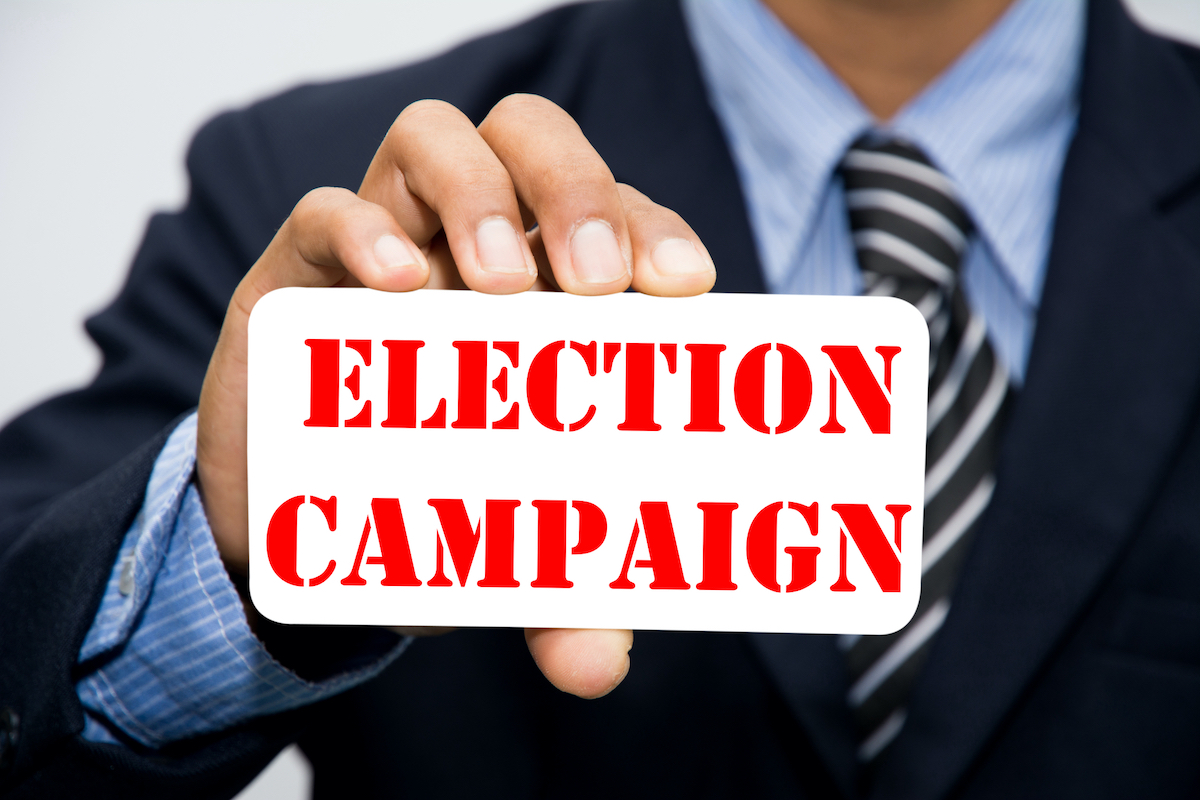CNN —
President Joe Biden faces continued headwinds from broadly negative job ratings overall, widespread concerns about his age and decreased confidence among Democratic-aligned voters, according to a new CNN Poll conducted by SSRS.
There is no clear leader in a potential rematch between Biden and former President Donald Trump, who is widely ahead in the GOP primary. And nearly half of registered voters (46%) say that any Republican presidential nominee would be a better choice than Biden in 2024.
Meanwhile, hypothetical matchups also suggest there would be no clear leader should Biden face one of the other major GOP contenders, with one notable exception: Biden runs behind former South Carolina Gov. Nikki Haley.
Since Biden announced his reelection bid earlier this year – where he framed the 2024 contest as a fight against Republican extremism – his approval ratings have remained mired below the mid-40s, similar to Trump’s standing in 2019, and several points below Ronald Reagan, Barack Obama and Bill Clinton at this point ahead of their reelection campaigns.
Still, Biden’s prospective opponents face challenges of their own: 44% of voters feel any Democratic candidate would be a better choice than Trump. Among the full public, both Biden’s and Trump’s favorability ratings stand at just 35%.
Record low share of Americans say Biden inspires confidence
Views of Biden’s performance in office and on where the country stands are deeply negative in the new poll. His job approval rating stands at just 39%, and 58% say that his policies have made economic conditions in the US worse, up 8 points since last fall. Seventy percent say things in the country are going badly, a persistent negativity that has held for much of Biden’s time in office, and 51% say government should be doing more to solve the nation’s problems.
Perceptions of Biden personally are also broadly negative, with 58% saying they have an unfavorable impression of him. Fewer than half of Americans, 45%, say that Biden cares about people like them, with only 33% describing him as someone they’re proud to have as president. A smaller share of the public than ever now says that Biden inspires confidence (28%, down 7 percentage points from March) or that he has the stamina and sharpness to serve effectively as president (26%, down 6 points from March), with those declines driven largely by Democrats and independents.
Roughly three-quarters of Americans say they’re seriously concerned that Biden’s age might negatively affect his current level of physical and mental competence (73%), and his ability to serve out another full term if reelected (76%), with a smaller 68% majority seriously concerned about his ability to understand the next generation’s concerns (that stands at 72% among those younger than 65, but just 57% of those 65 or older feel the same).
Most Democratic voters wish they had an alternative to Biden
A broad 67% majority of Democratic and Democratic-leaning voters now say it’s very or extremely likely that Biden will again be the party’s presidential nominee, up from 55% who felt that way in May. But 67% also say the party should nominate someone other than Biden – up from 54% in March, though still below the high of 75% who said they were seeking an alternative last summer.
That remains largely a show of discontent with Biden rather than support for any particular rival, with an 82% majority of those who’d prefer to see someone different saying that they don’t have any specific alternative in mind. Just 1%, respectively, name either of his two most prominent declared challengers, Robert F. Kennedy, Jr. or Marianne Williamson.
Much of the hesitation revolves around Biden’s vitality rather than his handling of the job. While strong majorities of Democratic and Democratic-leaning voters continue to say that Biden cares about people like them (81%) and to approve of his overall job performance (75%), declining shares see him as inspiring confidence (51%, down 19 percentage points since March) or having the stamina and sharpness to serve effectively as president (49%, down 14 points from March).
Asked to name their biggest concern about a Biden candidacy in 2024, 49% directly mention his age, with his mental acuity (7%) and health (7%) also top concerns, along with his ability to handle the job (7%) and his popularity and electability (6%). Just 5% say that they have no concerns.
“I think he’s a trustworthy, honest person. But he’s so old and not totally with it,” wrote one 28-year-old Democratic voter who was surveyed. “Still love him though. But I also wish he was more progressive. It’s complicated.”
Others see both positives and negatives to his age. “His age is a bit worrisome, but I would like to see a good strong Democrat as a consideration,” wrote a 66-year-old Democratic-leaning independent voter. “Otherwise I and husband will stick with Biden. He has wisdom many younger do not have nor understand.”
Asked directly about the potential effects of his age, majorities of Democratic-aligned voters say they are seriously concerned that Biden’s age might negatively affect his current level of physical and mental competence (56%), his ability to win the 2024 general election if nominated (60%), and his ability to serve another full term as president if reelected (61%). Fewer, 43%, say they’re seriously concerned that his age would negatively affect his ability to understand the concerns of the next generation of Americans, although that rises to 59% among Democratic-aligned voters younger than 45. If reelected, Biden would take office in January 2025 at age 82.
Most Democratic-aligned voters younger than 45 say they approve of Biden’s job performance overall. But in a break from older partisans, substantial majorities also say that Biden does not inspire confidence (63%), does not have the stamina and sharpness to serve effectively (64%), and that his policies have failed to improve the economy (64%).
Voters say their choices in a 2020 rematch would mostly reflect their views of Trump
In an early gauge of a hypothetical Biden-Trump rematch, CNN’s poll finds, registered voters are currently split between Trump (47%) and Biden (46%), with the demographic contours that defined the 2020 race still prominent. Biden sees majority support among voters of color (58%), college graduates (56%), voters younger than 35 (55%) and women (53%), while Trump has majority support among Whites (53%), men (53%) and voters without a college degree (53%). Independent voters break in Biden’s favor, 47% to 38%, as do suburban women (51% Biden to 44% Trump). Trump holds wide, though not unanimous, support among voters who currently disapprove of Biden’s job performance, with 13% in this group saying they’d back Biden over Trump regardless.
Presidential elections are decided by the state-by-state votes that determine the makeup of the electoral college rather than by national preferences, and given the distribution of electoral college votes among the states, a near-even race in the nationwide ballot is more likely to tilt to the Republican candidate in the electoral college count than the Democratic one.
Nearly 6 in 10 registered voters say that their vote in a matchup between Trump and Biden would be largely motivated by their attitudes toward the former Republican president – 30% say they’d vote for Biden mostly to express their opposition to Trump, and 29% that they’d vote for Trump mostly in an affirmative show of support. Only about one-third, by contrast, said they’d see their votes mostly as a way to cast judgment on Biden.
The criminal cases against Trump loom large over his candidacy, with both those motivated by support and those driven by opposition to him offering strongly held views on the charges. Those who say their support for Biden is more of an anti-Trump vote are near universal in saying the charges related to his role in the January 6, 2021, attack on the US Capitol (96%) and to efforts to overturn the 2020 election (93%) are disqualifying if true, while about seven in 10 of those who say their backing for Trump is to show support for him say the former president faces so many charges largely due to political abuse of the justice system (69%).
Despite voters’ strong opinions toward Trump, Biden fares no better against any other Republican hopefuls tested in the poll. He is about even with Ron DeSantis (47% each), Mike Pence (46% Pence, 44% Biden), Tim Scott (46% Scott, 44% Biden), Vivek Ramaswamy (46% Biden, 45% Ramaswamy), and Chris Christie (44% Christie, 42% Biden). Haley stands as the only GOP candidate to hold a lead over Biden, with 49% to Biden’s 43% in a hypothetical match between the two. That difference is driven at least in part by broader support for Haley than for other Republicans among White voters with college degrees (she holds 51% of that group, compared with 48% or less for other Republicans tested in the poll).
As of now, Republican and Republican-leaning voters are more deeply driven to vote in 2024 (71% extremely motivated) than Democratic-aligned voters (61% extremely motivated).
The CNN Poll was conducted by SSRS from August 25-31 among a random national sample of 1,503 adults drawn from a probability-based panel, including 1,259 registered voters and 391 Democratic and Democratic-leaning independent voters. The survey included an oversample to reach a total of 898 Republicans and Republican-leaning independents; this group has been weighted to its proper size within the population. Surveys were either conducted online or by telephone with a live interviewer. Results among the full sample have a margin of sampling error of plus or minus 3.5 points; among registered voters, the margin of sampling error is 3.6 points, and it is 6.0 for Democratic and Democratic-leaning voters.










